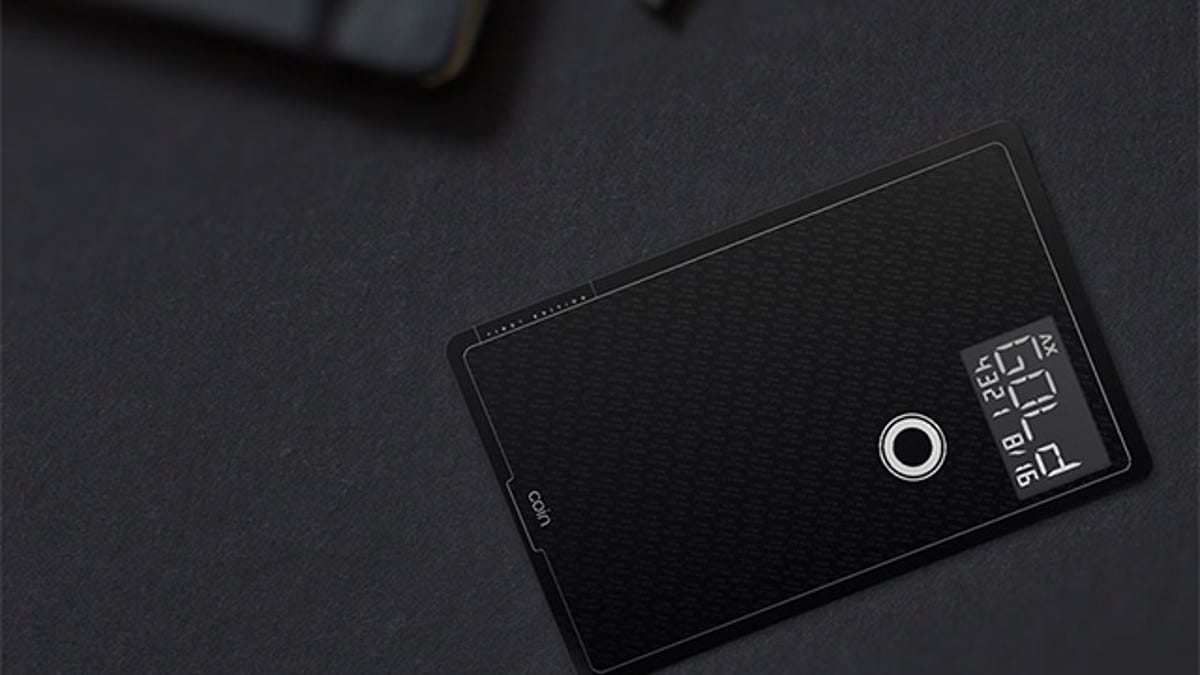Coin to strengthen security of all-in-one credit card
After reaching its crowdfunding campaign goal in only 40 minutes, the team behind Coin continues to take preorders and addresses its most-pressing criticisms.

The makers of Coin -- a device that can be programmed to act as a credit, debit, gift, and rewards card rolled into one -- were not expecting their .84mm-thin device to become a Silicon Valley sensation. Sure, their promotional video and Web site were well-produced, but the team of seven set its crowdfunding goal at a modest $50,000. The startup hit that goal in only 40 minutes. Meanwhile, its YouTube video has attracted more than 5.5 million views.
CEO Kanishk Parashar is keeping under wraps just how many devices Coin has sold since launching this past Thursday. But the company will continue taking preorders for its all-in-one credit card. It also will bake in three new features that address some of its most-pressing criticisms.
Many critics of Coin were quick to point out the obvious security issues with a programmable -- hence, hackable -- device that contains heaps of personal financial data.
The company is remaining steadfast in its reliance on 128- and 256-bit encryption that spans its servers, its mobile app, and the device itself. But it's now addressing the fraud concern by building in an alarm that keeps track of how many times the card is swiped. The device will alert you via your smartphone if the card potentially has been used fraudulently, as in a waiter trying to swipe the device multiple times or attempting to toggle to a different card on the Coin device.
Coin is also making it possible for users to turn on and off the communication between their Coin cards and smartphones via Bluetooth Low Energy. That caveat was built in because when the Coin isn't connected to a mobile app for a user-designated amount of time, it disables itself and the card cannot be used. Critics said this feature inadvertently could cause inconveniences if users forget to take their phones with them, run out of battery life while away from their chargers, or have their phones in airplane mode.
Users now will be able to unlock their cards from their smartphones, but it must be done using the mobile app -- meaning if your phone is on its way to zero battery life, you'll need to take the preemptive measure and unlock it before you lose the chance.
Coin also now will enable you to "lock" the card to a certain account -- re: credit, debit, or gift -- which addresses the concern of a merchant accidentally applying a purchase to the wrong account on the card.
In an extensive FAQ on its Web site, the company also outlined some key features that skeptics may have overlooked. For instance, Coin will work as an ATM card, will have a place for your signature on the back, and eventually will integrate the technology behind EMV, or the Euorpay, Mastercard, and Visa standard. The last of those is especially important given the United States' inevitable move to integrated circuit cards over the course of the next few years.
For 23 more days, Coin is selling its card at a discounted price of $50. After that, it jumps to $100. That may be too big a cost for those who have argued that, despite its cool factor, Coin is still an expensive convenience, especially given that its battery lasts only two years.

